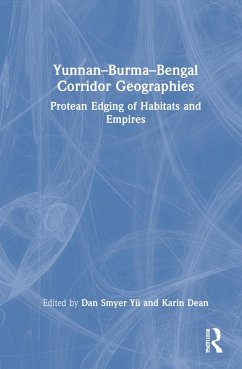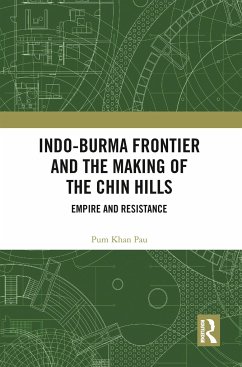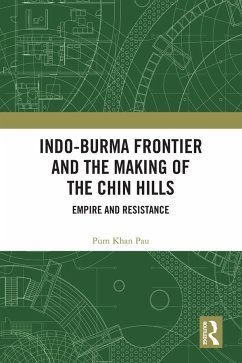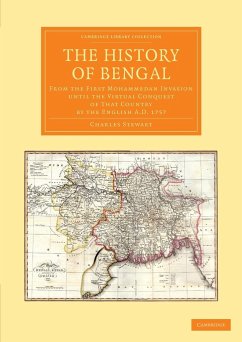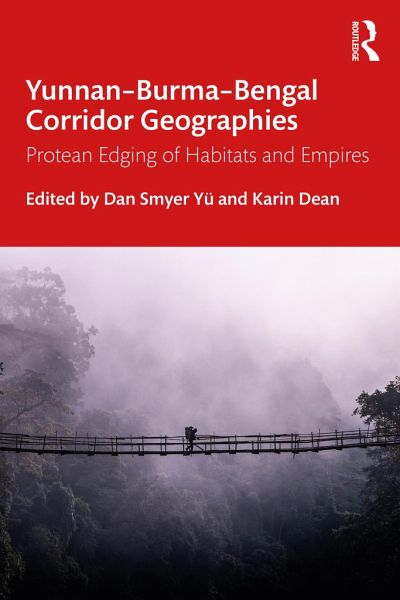
Yunnan-Burma-Bengal Corridor Geographies
Protean Edging of Habitats and Empires
Herausgeber: Smyer Yü, Dan; Dean, Karin

PAYBACK Punkte
25 °P sammeln!
This book explores the historical interconnections between Bengal, Burma, and Yunnan (China), and views the corridor as a transregion that exhibits mobility, connectivity and diversity as well as place-based ecogeological uniqueness. With a focus on the concept of corridor geographies that have shared human and environmental histories beyond sharply demarcated territorial sovereignties of modern individual nation-states, it presents the variety and complexity of premodern and modern pathways, corridors, borders, and networks of livelihood-making, local political alliances, trade and commerce, ...
This book explores the historical interconnections between Bengal, Burma, and Yunnan (China), and views the corridor as a transregion that exhibits mobility, connectivity and diversity as well as place-based ecogeological uniqueness. With a focus on the concept of corridor geographies that have shared human and environmental histories beyond sharply demarcated territorial sovereignties of modern individual nation-states, it presents the variety and complexity of premodern and modern pathways, corridors, borders, and networks of livelihood-making, local political alliances, trade and commerce, religions, political systems, and colonial encounters. The book discusses crucial themes including environmental edgings of human-nonhuman habitats, transregional migratory routes and habitats of megafauna, elephant corridors in Yunnan-Myanmar-Bengal landscape, framing spaces between India and China, Tibetan-Myanmar corridors, transboundary river systems, narratives of a Rohingya jade trader, cross-border flow of De'ang's fermented tea, householding in upland Laos, cultural identities, and trans-border livelihoods. Comprehensive and topical, with its wide-ranging case studies, this book will be of interest to scholars and researchers of history, routes and border studies, sociology and social anthropology, South East Asian history, South Asian history, Chinese studies, environmental history, human geography, international relations, ecology, and cultural studies.





